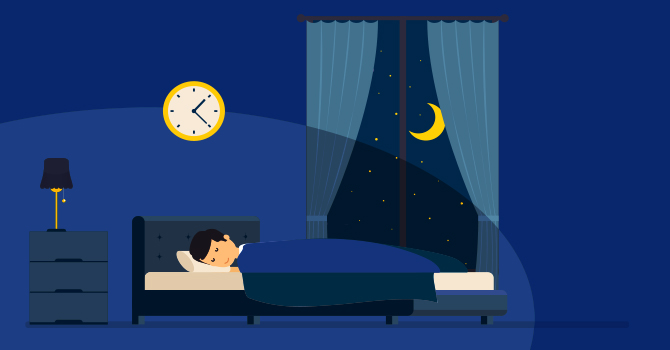**Sleep and Aging: Understanding Changes in Sleep Patterns as We Grow Older**
Sleep is a fundamental aspect of health and well-being, playing a crucial role in physical, cognitive, and emotional functioning. As we age, our sleep patterns and requirements naturally evolve, leading to changes in sleep quality, duration, and timing. Understanding these changes can help individuals navigate the aging process and maintain optimal sleep habits. Let’s explore how sleep patterns evolve with age:
**1. Changes in Sleep Architecture:**
– As we age, there are alterations in sleep architecture, including changes in the amount and distribution of different stages of sleep. Older adults tend to experience a decrease in deep sleep (slow-wave sleep) and REM (rapid eye movement) sleep, which are essential for physical restoration, memory consolidation, and emotional processing.
– Sleep becomes more fragmented, with more frequent awakenings and lighter sleep stages. This may result in decreased sleep efficiency and feelings of daytime sleepiness or fatigue.
**2. Shifting Circadian Rhythms:**
– Circadian rhythms, the internal biological clocks that regulate sleep-wake cycles, tend to shift with age. Older adults often experience a phase advance in their circadian rhythms, leading to earlier bedtimes and wake times.
– This shift in circadian timing, often referred to as “advanced sleep phase syndrome,” can result in difficulty staying asleep through the night and waking up earlier in the morning.
**3. Increased Prevalence of Sleep Disorders:**
– Older adults are more prone to developing sleep disorders such as insomnia, sleep apnea, restless legs syndrome, and periodic limb movement disorder. These conditions can contribute to sleep disturbances, impaired sleep quality, and daytime dysfunction.
– Medical conditions, medication use, changes in physical health, and lifestyle factors can increase the risk of sleep disorders in older adults.
**4. Impact of Lifestyle and Environmental Factors:**
– Lifestyle factors such as diet, exercise, stress levels, and evening activities can influence sleep patterns and quality in older adults. Regular physical activity, relaxation techniques, and healthy sleep hygiene practices can promote better sleep.
– Environmental factors such as noise, light exposure, temperature, and bedroom comfort play a significant role in sleep quality and comfort. Creating a sleep-friendly environment can enhance relaxation and promote restorative sleep.
**5. Importance of Sleep Hygiene and Routine:**
– Establishing consistent sleep-wake schedules and bedtime routines can help regulate circadian rhythms and improve sleep quality. Maintaining a calming bedtime routine, avoiding stimulating activities before bed, and creating a comfortable sleep environment can support relaxation and facilitate falling asleep.
– Practicing good sleep hygiene habits, such as limiting caffeine and alcohol intake, avoiding electronic devices before bed, and ensuring a comfortable mattress and bedding, can contribute to better sleep quality and overall well-being.
**6. Seeking Evaluation and Treatment:**
– Persistent sleep disturbances or changes in sleep patterns should be evaluated by a healthcare professional to rule out underlying medical conditions or sleep disorders. A comprehensive assessment may include a sleep history, physical examination, sleep diary, and possibly overnight sleep studies.
– Treatment options for sleep disorders in older adults may include lifestyle modifications, cognitive-behavioral therapy for insomnia (CBT-I), medication management, or treatment of underlying medical conditions contributing to sleep disturbances.
**7. Importance of Prioritizing Sleep Health:**
– Recognizing the importance of sleep health and prioritizing adequate sleep is essential for overall health and well-being as we age. Quality sleep supports cognitive function, immune function, mood regulation, cardiovascular health, and longevity.
– Making sleep a priority, practicing good sleep habits, and seeking help for sleep problems when needed can help older adults maintain optimal health and quality of life as they age.
In conclusion, understanding changes in sleep patterns as we grow older and adopting strategies to promote healthy sleep habits are essential for maintaining overall health and well-being. By prioritizing sleep health, practicing good sleep hygiene, and seeking evaluation and treatment for sleep disturbances when needed, older adults can optimize their sleep quality and quality of life as they age.



